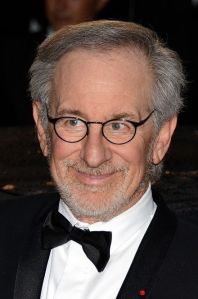Its important to learn from those who have gone before you in a sort of ‘respect your elders’ type of manner and I have always endeavoured to study the works of many varied media texts from difference in genre and media form. What I find most interesting, as a want to be director/producer, is to read books and articles from other director/producers or to watch interviews by them in addition to viewing their films and analysing them. Recently, I discovered a Facebook page by a director named Danny Lacey, who whilst not being a large established name in film is influential in his writings. I even posted a video of his about how to shoot like an editor in a previous post. Here is his most recent status about cinematography:

“One of the important aspects of my Filmmaking Journey is grasping the art of cinematography (and photography). As a director I think it’s an essential skill to have in my armoury. Now, I’m not saying I’m a great cinematographer (or photographer), far from it. What I am saying is I have a good basic grasp of the art after years of pretending. That’s right, pretending.
I’ve owned several cameras over the years and I just get out there and shoot stuff, all the time. It’s a great way to learn. I like to think I know about framing, what effect a lens will have on a shot, exposure, depth of field and colour grading.
I can take this experience on to the film set with me as I now have a good idea of what I want from a shot and can describe to my cinematographer what I want in a more clear and qualified way (making me look a little less stupid).
So, if you’re new to the industry and just starting out you should more than double up on your skill set. If you’re a director, learn how to write. If you’re a camera guy, learn how to light. If you’re an editor, learn how to operate a camera and so on.
I took my Canon 5D MKII out to Blackpool in the UK recently for more photography practice. It was a lovely day and we had a glorious golden hour which meant we got some lovely shots. I also wanted to experiment with shutter speeds at night.
Hope you don’t mind but I thought I’d share a selection of pictures from that day. Shot on the Canon 5D MKII, the only lens I used was the Canon 24-70mm and all images were edited in Lightroom 5.
Do you think it is important for a filmmaker to be multi skilled? what are your main skills on set?”

The below picture doesn’t do the beauty of his cinematography skills justice so I advise you to check out his other images here (https://www.facebook.com/thefilmmakersjourney/timeline). This has really given me some drive to begin adding strings to my bow. Its all well and good saying that I’m a director/producer, but really what good is that when I don’t know how editing functions, I don’t understand the use of lighting, I can’t put sound to image? What use is it in a world where jobs are hard to come by and employers look for supermen who can do everything by themselves? I am determined to find myself a year two or three photographer and ask them to join me on a day trip to somewhere to teach me about cinematography skills and how to capture the beauty of the eye.



